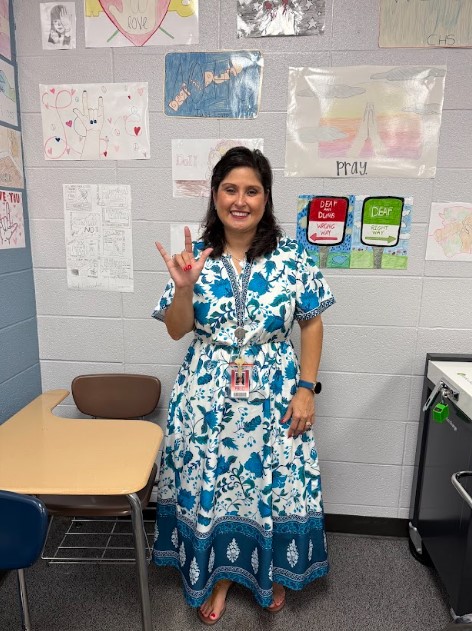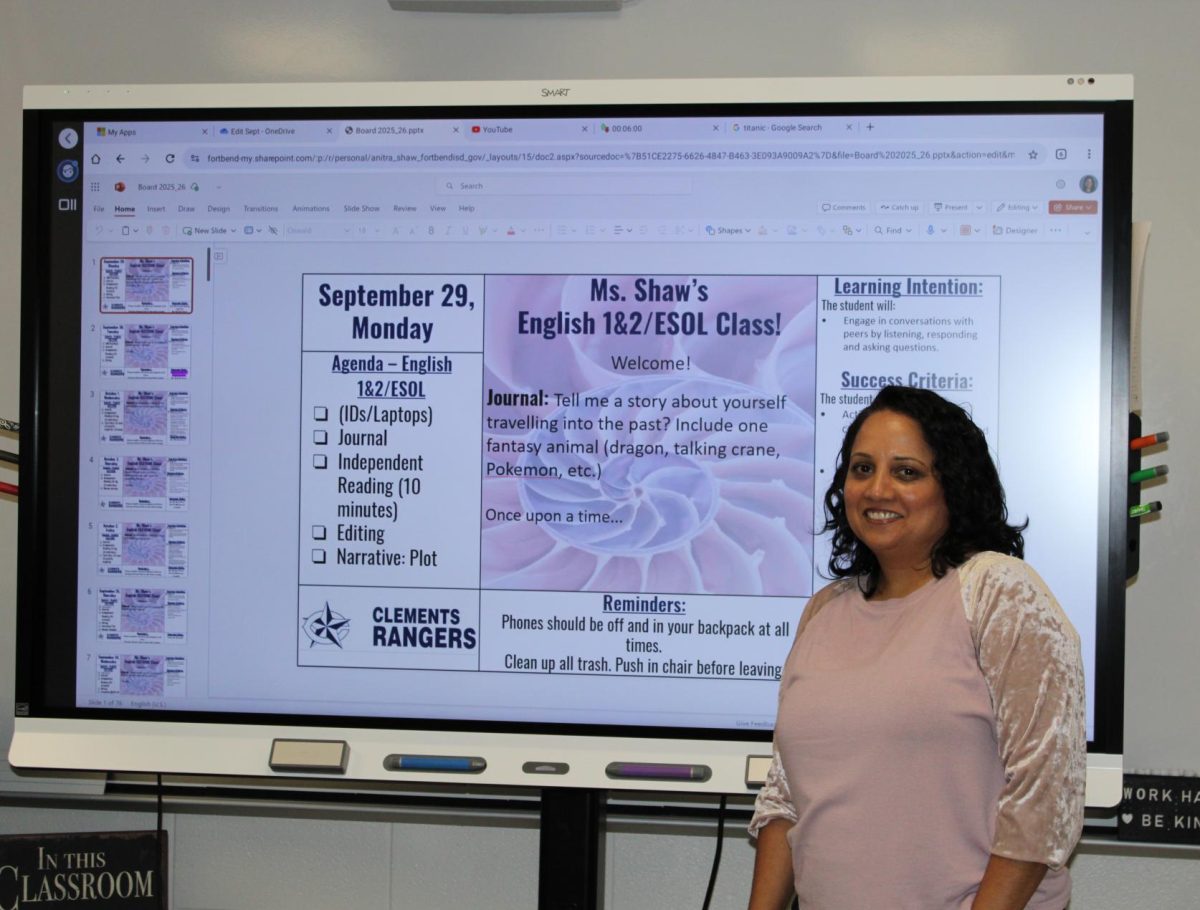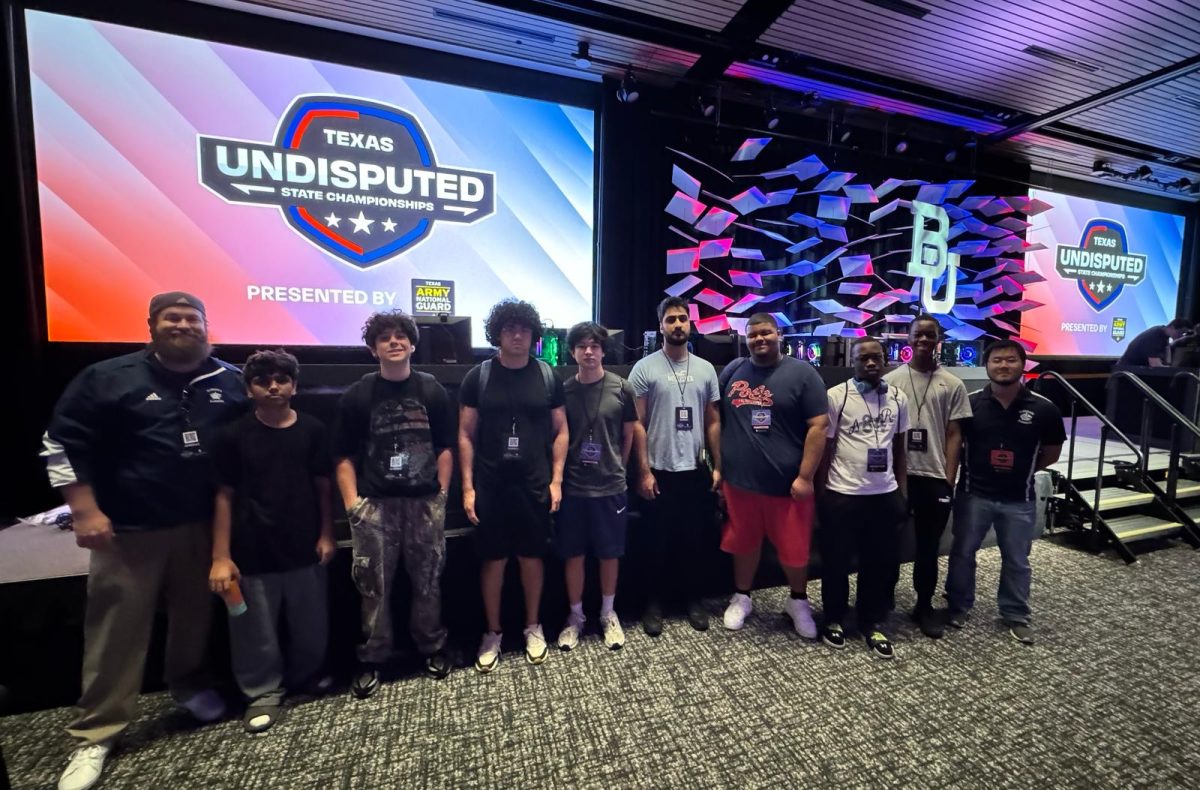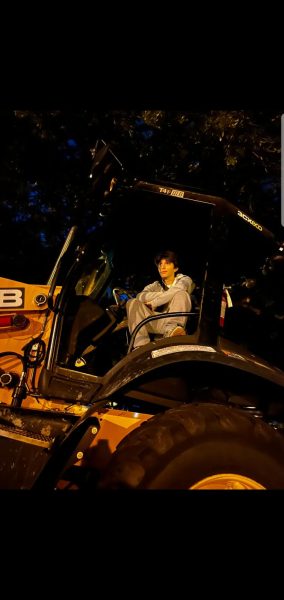Macey Jahn and Tiffany Vandivort’s departure from the FFA program has left major shoes to fill. Luckily, Lily Saenz and Kaylie Argueta, 2 Sam Houston State graduates with ample experience in FFA, have stepped up to take the mantle and bring the FFA program to new heights.
Julian Barkouda: If you were stranded in the woods, what four items would you bring and why?
Lily Saenz: If I just spawned in the woods, I would pick a tent, first aid kit, a gallon of water, and my dogs. They (the dogs) could probably help hunt and bring food for me.
Kaylie Argueta: I’m gonna bring my grandma because that woman can clean, she can kill, and she can cook, plus she has a walker, so if I get tired, I can just sit on her walker. I would also bring one of those utility knives and a life straw, so you can just stick it in the lake and it cleans out the dirtiness, so you can drink clean water.
J.B: What would you say is your favorite movie or TV series, and why?
L.S.: Oh, out of all the shows I’m watching, ‘Brooklyn Nine-Nine’ is my favorite so far. For why, I’d say it’s a funny comedy, and I like the banter between the male and female main characters.
K.A.: I’d say my favorite movies are “Remember the Titans”, because who doesn’t love a good emotional football movie, then we have ‘Beetle Juice,’ because it’s a funny/iconic series. Finally, I’d say ‘The Fantastic Beasts’ is on my list, because of the cool animals in the movie.
J.B: What would you say is your biggest inspiration for becoming a teacher, and why did you select Clements as your first place of teaching?
L.S.: My biggest inspiration would be my Ag teacher from high school, as she is the main reason I wanted to teach Ag. Originally I wanted to do research for genetics, but then COVID happened, and I didn’t want to go to college far away, so that’s why I chose to go to a college close by, and study agriculture education instead.
K.A.: My first inspiration for becoming a teacher would be my dad, to me he’s the most positive person on earth, and his ability to bring light to wherever he goes, inspires me to do the same in the classroom. Secondly, I really liked my Ag teacher because she was so understanding of every situation and provided guidance through building a chapter that wasn’t established, and made sure that every kid had a home.
J.B: What is your teaching philosophy or approach to education, and how do you think that’ll translate to the classroom?
K.A.: My teaching philosophy would be to help kids find that spark and passion that they want to continue with, be it in other classes or down the Ag pathway.
J.B: What do you feel like is the most rewarding thing about teaching, and why?
L.S.: I think the most rewarding thing is seeing the students’ excitement over curriculum, and seeing their drive for certain topics. Also, when I have students around me, who come to class, are excited to learn, and are looking to pursue a career involving agriculture, it is great seeing their advancement in class and what they plan to do in the future.
K.A.: It has to be getting to know the kids, and then seeing how excited they get to come to class. Also, I feel like seeing those who are in an Ag class, just because it’s easy, change into thinking ‘I like this, I enjoy it,’ and light a new spark in them to pursue something they didn’t think of beforehand.
J.B: After going through the college system, what advice would you recommend for upperclassmen to adhere to?
L.S.: I think my biggest piece of advice would be that you don’t have to be super active and involved in college, I wasn’t and I still had a great experience; I didn’t go to any of the football games, I did not do any of the school traditions, and I think it’s ok if you don’t want to. I know that many people put that pressure on freshmen that they need to be involved, but you don’t, and that’s fine.
K.A.: I would say, just try, and that it’s ok to change your major because I think many people go in, thinking ‘I have to know what I’m doing, I have to know what I have to go for,’ but it’s ok if you do not know what to go into, and you have 4 years to figure it out. Most people change their major from wildlife to animal science, or a vet to teacher certification, and it is ok to go through that change.
J.B: If you have any goals for your class or FFA as a whole, what are they, and why did you choose them?
L.S.: My goal with FFA is to grow the program and to get more people knowledgeable about what FFA is, because so many people just think it about raising animals, but there is so much more. There is so much you can do outside of school, where you can get scholarships for stuff, learn about leadership, and gain knowledge not just about animal management.
K.A.: I want there to be a positive family because my hope for FFA is for it to grow and become something exceptional, and feel like a home for people who might not have that within other organizations.








